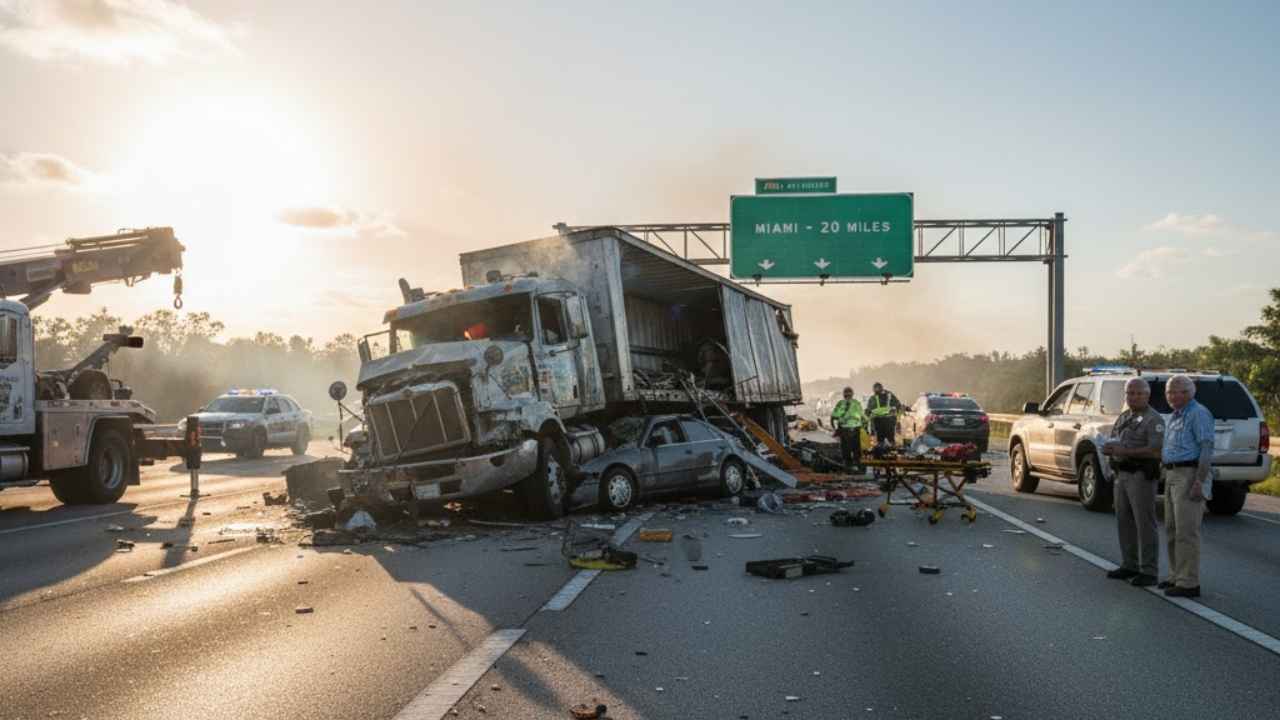If you’ve been involved in a truck accident in Florida, proving negligence is essential to securing compensation for your injuries, damages, and losses. Negligence refers to the failure to act with reasonable care, leading to harm. In the context of truck accidents, this could refer to actions such as speeding, driving under the influence, or inadequate maintenance.
To help you understand how to prove negligence in your Florida truck accident claim, let’s break it down.
What is Negligence in a Truck Accident?
In Florida, negligence occurs when a party fails to take reasonable precautions, resulting in an accident or injury. When pursuing a truck accident claim, proving negligence is critical for obtaining damages.
To prove negligence, you must demonstrate four key elements:
- Duty of Care
- Breach of Duty
- Causation
- Damages
Let’s explore these elements in detail and see how they apply to Florida truck accidents.
1. Duty of Care
Every driver on the road, including truck drivers, has a responsibility to operate their vehicle safely and responsibly. This is known as the duty of care.
For truck drivers, the duty of care is even higher due to the size and weight of their vehicles. They must adhere to strict regulations regarding speed limits, rest periods, and vehicle maintenance.
In a truck accident case, your first job is to establish that the truck driver or trucking company had a legal duty to operate their vehicle safely. Here’s how it applies:
- Truck drivers must follow traffic laws and maintain control of their vehicles.
- Trucking companies must ensure that their drivers are adequately trained and that their vehicles are well-maintained.
2. Breach of Duty
Once the duty of care is established, you need to show that the truck driver or company breached that duty. This is the part where actions or omissions result in unsafe driving.
Here are examples of breaches of duty:
- Speeding or reckless driving: Truck drivers must adhere to speed limits, especially in congested cities like Miami or Orlando. If the driver was speeding, they have breached their duty.
- Driving under the influence: If the truck driver was intoxicated or impaired, they failed to drive safely.
- Driver fatigue: Truck drivers must comply with federal hours-of-service regulations. Fatigue can impair judgment and reaction time, leading to dangerous accidents.
- Improper vehicle maintenance: Trucking companies must keep vehicles in good working order. Failing to maintain brakes, tires, or other safety features can lead to accidents.
Proving that the defendant violated these rules is essential to your claim. This often involves gathering evidence such as:
- Police reports
- Driver logs
- Maintenance records
3. Causation
Next, you must prove that the breach of duty directly caused the accident. This means showing that if the truck driver hadn’t acted negligently, the accident wouldn’t have happened.
For example:
- If the truck driver was texting while driving, you must show that their distraction caused the collision.
- If poor vehicle maintenance led to brake failure, you need to link that malfunction to the crash.
It’s crucial to gather as much evidence as possible to link the breach of duty to the accident. This could include eyewitness testimony, photos of the accident scene, and expert analysis of the accident’s cause.
4. Damages
Finally, you must prove that you suffered damages as a result of the accident. Damages can be both economic and non-economic, including:
- Medical expenses: The cost of treating injuries caused by the truck accident.
- Lost wages: If the accident caused you to miss work, you can claim lost income.
- Pain and suffering: Compensation for the emotional and physical distress caused by the accident.
As you pursue truck accident settlements in Florida, it’s essential to keep detailed records of your medical treatment, lost income, and any other costs associated with your injuries.
Types of Evidence to Prove Negligence
To strengthen your case and prove negligence, you’ll need various pieces of evidence. The more detailed your evidence, the better chance you have of securing a favorable settlement.
Key evidence includes:
- Police Reports: These contain valuable information about the accident, including the driver’s behavior and potential violations.
- Truck Driver’s Logs: These documents show the hours the driver worked and can reveal if they violated fatigue regulations.
- Black Box Data: Truck black boxes capture vital information, such as speed, braking, and driving patterns, at the time of the crash.
- Witness Testimony: Eyewitnesses can provide a clear picture of what happened and back up your version of events.
- Maintenance Records: If improper vehicle maintenance contributed to the accident, maintenance records will be crucial evidence.
Conclusion
To prove negligence in a Florida truck accident claim, you must show that the truck driver or trucking company failed to uphold their duty of care, directly causing the accident. Gathering evidence, proving causation, and documenting your damages are crucial steps in building a strong case. Working with an experienced attorney will help ensure you receive fair truck accident settlements in Florida and full compensation for your injuries and losses.




